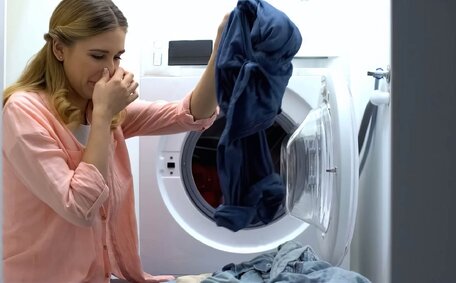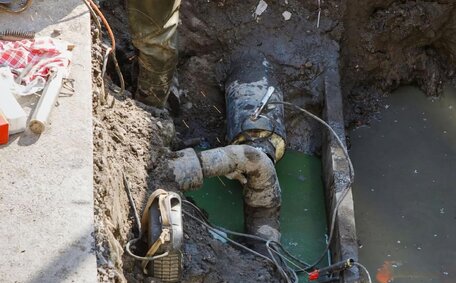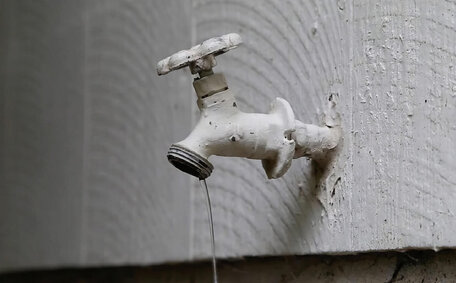Introduction to Septic Systems and Why Maintenance Matters
Septic tanks are essential for wastewater management in remote locations such as Quakers Hill, where mains sewage isn’t always accessible. Consistent maintenance is vital to ensure the functionality and durability of septic systems, and to avert costly damage or replacements.
Our expertise in plumbing for residential and commercial properties mandates that we provide homeowners with the knowledge necessary to early identify septic system trouble signs. Timely professional inspections and servicing can preclude more severe problems in the future.
In this article, we elucidate key indicators that a septic tank near your home requires attention. Recognising warning signs like slow drains, damp patches on your lawn, or sewage odours can prompt quick action to address septic tank concerns.
Educating homeowners enables them to safeguard their property’s value and prevent environmental contamination. So let’s explore central aspects of septic system functionality, and how to spot symptoms of impending problems.
Warning Signs Your Septic Tank Needs Attention
Several definitive signs signal that your septic tank is full and needs professional servicing or attention:
- Slow or sluggish drains: If sinks, showers, or toilets drain slowly, it may indicate that your septic tank is overfilled and requires pumping.
- Gurgling sounds: Strange gurgling noises from your plumbing fixtures when draining could indicate a blockage or backup in your septic system.
- Sewage odours: If you notice foul odours around your yard or your house, this suggests sewage is backing up due to a failing system.
- Wet spots: Excessively wet areas or muddy spots in your septic tank drain field could signify your tank is full and leaking sewage into the soil.
- Lush vegetation growth: If there is excessive or lush plant growth in the drain field area, this may indicate nutrient-rich sewage is leaking from your tank.
- Low water pressure: A drop in water pressure through fixtures could be due to solids accumulating in your tank.
- Higher water usage: A spike in household water usage without explanation may be caused by small leaks or issues in your septic system.
Should any of these warning signs emerge, it’s imperative to engage a professional such as Quakers Hill Plumbing for a comprehensive inspection and septic tank pumping. Acting quickly can help avoid major damage your property or costly repairs down the line.
Slow or Clogged Drains
Slow draining or clogged pipes are one of the most common warning signs that your septic system requires attention and your drain system may be compromised. When sinks, tubs, showers, or toilets drain slower than usual, this live site only within scenario typically indicates that solids are accumulating inside the tank.
As waste and wastewater flows into the tank, solids gradually settle on the bottom forming sludge. If not regularly pumped, this sludge will eventually fill the tank causing sewage to back up through the drain lines. Slow drainage is a call to action to prevent sewage from backing up into your home, necessitating immediate septic tank pumping to remove the accumulating solids.
Clogged drains can also result from tree roots or grease trap build-up and other debris entering the drain lines from your home. If plunging and snaking doesn’t solve the problem, contact a professional to inspect for blockages or locate any pipe damage requiring repair.
It’s crucial not to ignore slow drains as a sign your septic system needs servicing. Catching issues early prevents costly backups and contamination hazards. Regular septic pumping combined with vigilant home drainage monitoring protects system integrity.
Unusual Odors
Unusual or foul odours around your home are a critical sign that your septic tank requires urgent attention. Sewage gases like hydrogen sulphide and methane can cause unpleasant rotten egg or sewage-like smells.
Odours become noticeable around your septic plumbing vents or soak areas when there’s an overflow due to waste buildup. Sluggish drainage and gurgling from pipes can follow these smells, hinting that a bad smell could also indicate sewage might be flowing up into your home.
Call a professional like Quakers Hill Plumbing immediately for septic tank cleaning, to pump out the tank, clean the drain field, and prevent spills or damage.
Prompt intervention upon first detecting odours can often avert catastrophic system failure. Don’t hesitate - unusual septic odours demand urgent action to contain the issue through professional cleaning and repairs.
Visible Signs of Failure
There are a few clear visible signs that may indicate your septic tank system has failed or is failing:
- Standing water, soggy soil, or lush grass over the drain field may mean the system isn’t processing wastewater, leading to potential sewage surfacing.
- Sewage apparent on the ground near tank entryways or the drain field ominously indicates a failing septic system with overflow.
- Low areas over the drain lines may visibly sink or depress, Signalling that the septic tank can indicate failure underneath.
- A geyser of raw sewage during heavy water usage signals that the tank is beyond capacity.
Don’t delay if you observe any clear signs of visible septic system failure. Call Quakers Hill Plumbing immediately for professional assessment and servicing to contain and rectify the issue before further environmental contamination or property damage occurs.
Regular inspections and pumping can often prevent potential failure. But at any visible stage of malfunction, urgent professional assistance is crucial.
What To Do if You Notice Septic Troubles
If you notice any signs of septic system troubles, it’s crucial to act promptly to contain issues before they escalate. As a first step, drastically reduce water usage to slow the flow into the tank until repairs can occur. Avoid using dishwashers, washing machines, showers, or flushing the porta potty more than necessary, as this is crucial knowledge homeowners should know about.
Reach out to a skilled plumber such as Quakers Hill Plumbing instantly to organise an inspection and to determine if your system needs cleaning. Describe the issues you’ve noticed so they can best diagnose the problem and provide repair recommendations.
An emergency plumber can also determine if sewage has leaked from the tank into the sewer line and surrounding soil, advising on safely containing contamination. Prevent pets and people from accessing contaminated areas until thorough clean-up and environmental remediation have been completed.
In a worst-case spill scenario, contact local county health departments to report conditions and ensure appropriate hazardous materials procedures are followed. Failing to address spills can risk substantial fines if environmental damage eventuates.
Call a plumber immediately when you notice septic issues to potentially save the system at a manageable cost. Leave mitigation to the professionals to ensure appropriate actions that protect yourself, the public, and the environment.
Calling a Professional Plumber
Enlist a professional plumber to diagnose and recommend solutions when you notice septic tank trouble signs.
As specialists in the plumbing industry with extensive training, companies like Quakers Hill Plumbing utilise advanced techniques and equipment for septic inspections and remediation. Such an approach enables them to pinpoint issues and determine the necessary repairs, replacements, or full system overhauls tailored to specific site conditions.
During an inspection, a professional plumber will meticulously examine tank components, inlet/outlet pipes, and the integrity of the drain field. They can advise on the most suitable pumping, clearing, component swaps, infiltration remedies, or complete system replacement options as needed.
Qualified technicians will safely manage any sewage contamination, ensuring protection of the surrounding environment. They dispose of waste properly, acting as placeholder yext knowledge for compliance, and ensure adherence with local health authority standards.
Don’t delay in seeking their assessment and solutions if you observe any disconcerting septic warnings.
Immediate Steps You Can Take
If you notice signs of septic system failure, it’s crucial to immediately reduce household water usage to slow the flow into the tank. Avoid using dishwashers, washing machines, showers and limit toilet flushing to only when absolutely necessary.
Utilising a laundromat for laundry needs until repairs are concluded can significantly alleviate the wastewater burden on your septic system.
Cordon off any areas with noticeable sewage backup or pooling to prevent contact by people and pets. Place conspicuous markers to avoid accidental contact with potential contaminants.
Contact a professional plumber like Quakers Hill Plumbing right away to arrange an emergency site inspection. Provide as much detail as possible on the issues youve noticed so they can best diagnose the faults and provide repair solutions.
Time is critical for early intervention when septic troubles strike. Follow these steps while awaiting professional assistance to contain risks and limit further potential property damage.
Preventative Maintenance Is Key
Regular preventative maintenance is vital to maintain a septic system’s long-term integrity and performance. Key tasks homeowners should routinely perform include:
- Professionally pump out the tank every 3-5 years to remove accumulated sludge and solids.
- Avoiding pouring fats, oils, harsh chemicals, pharmaceuticals or non-biodegradable products down drains that can damage the system.
- Not planting trees or shrubs near your septic tank as roots can invade and clog pipes over time.
- Scheduling annual inspections to check tank components and identify any early wear requiring repair.
- Practice water conservation at home to decrease wastewater overloading the absorption field.
Investing in regular maintenance will prevent premature septic system failures and expensive emergency repairs. It maintains proper wastewater filtration protecting the environment. Contact experienced local companies like Quakers Hill Plumbing, once the right methods are successfully installed, for professional guidance optimising your system.
Regular Tank Pumping
Regular septic tank pumping is critical for maintaining its lifespan. Experts typically recommend pumping every 3-5 years to remove the sludge and solids that accumulate at the bottom of the tank.
Permitting sludge and solids to build up diminishes the tank’s capacity, risking overflows or backups. Regular pumping provides space for incoming wastewater, enabling proper liquid separation and drainage to the field.
By practicing water conservation and responsible waste management, homeowners contribute to the longevity of their septic systems. Appropriate rubbish disposal habits help ensure excess solids don’t burden the tank, which can escalate to major issues.
By budgeting for professional pumping every 3-5 years, you protect system integrity and help avoid much more expensive emergency repairs from overflows or failure. Consistent septic maintenance prolongs functionality for the long run.
Water Conservation
Water conservation is vital for maintaining a healthy septic system. Overloading the tank with excess water, as noted on the added website, can cause premature failure. There are several ways homeowners can reduce water usage:
- Fix any leaky faucets, pipes or toilets.
- Adopt water-efficient fixtures like taps, showerheads, and toilets to minimise consumption of water.
- Run full loads in dishwashers and washing machines.
- Take shorter showers.
- Pay attention to how you use taps during routine activities like teeth brushing and handwashing.
Water conservation decreases the wastewater volume, alleviating pressure on the septic system. This allows solids and sludge more time to separate and needs emptied before the next pumping. It can potentially delay the need for pumping by years.
Ensuring your conservation efforts message appear live on your monthly bill, it protects the longevity of your system. It also demonstrates environmental awareness as a homeowner. Simple adjustments make a big difference.
Proper Waste Disposal
Properly disposing of waste keeps a septic system running efficiently. There are some key guidelines homeowners should follow:
- Avoid pouring fats, oils, grease, chemicals, pharmaceuticals, and non-biodegradable items down drains to prevent blockages and system failure.
- Avoid using garbage disposals excessively or putting large amounts of food waste down sinks. Compost plant materials instead. Excess solid waste can overwhelm tanks.
- Do not flush non-degradable items like diapers, wipes, and feminine products, as they accumulate and cause blockages.
- Dont use special additives or enzymes that claim to enhance tank performance. These typically damage systems.
- Select septic-safe bathroom tissue and personal care items to avert solid waste accumulation.
Following proper waste disposal guidelines reduces frequency of required pumping. It prevents premature system failures from obstructions and overload while protecting the environment. Careful household habits make a big difference!






